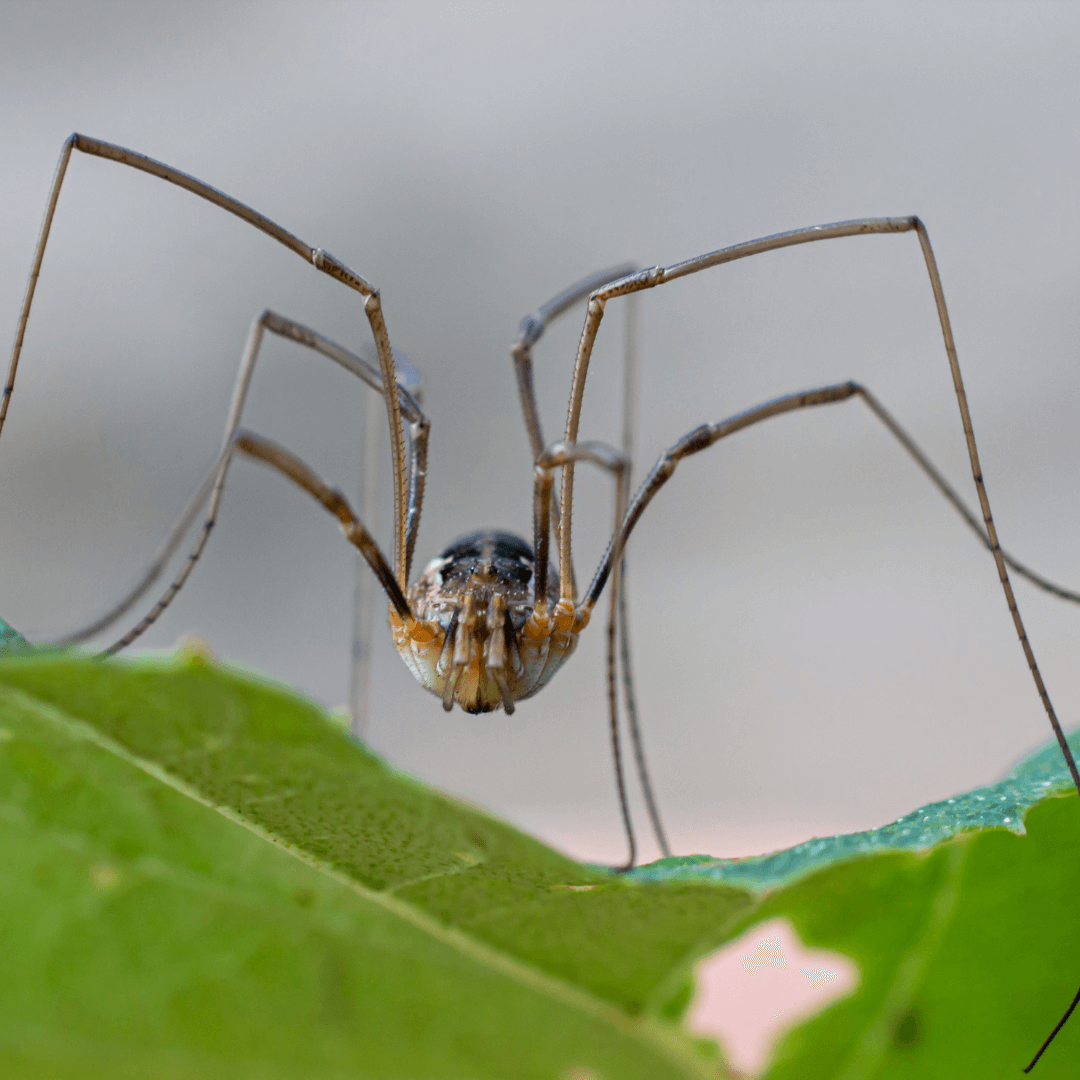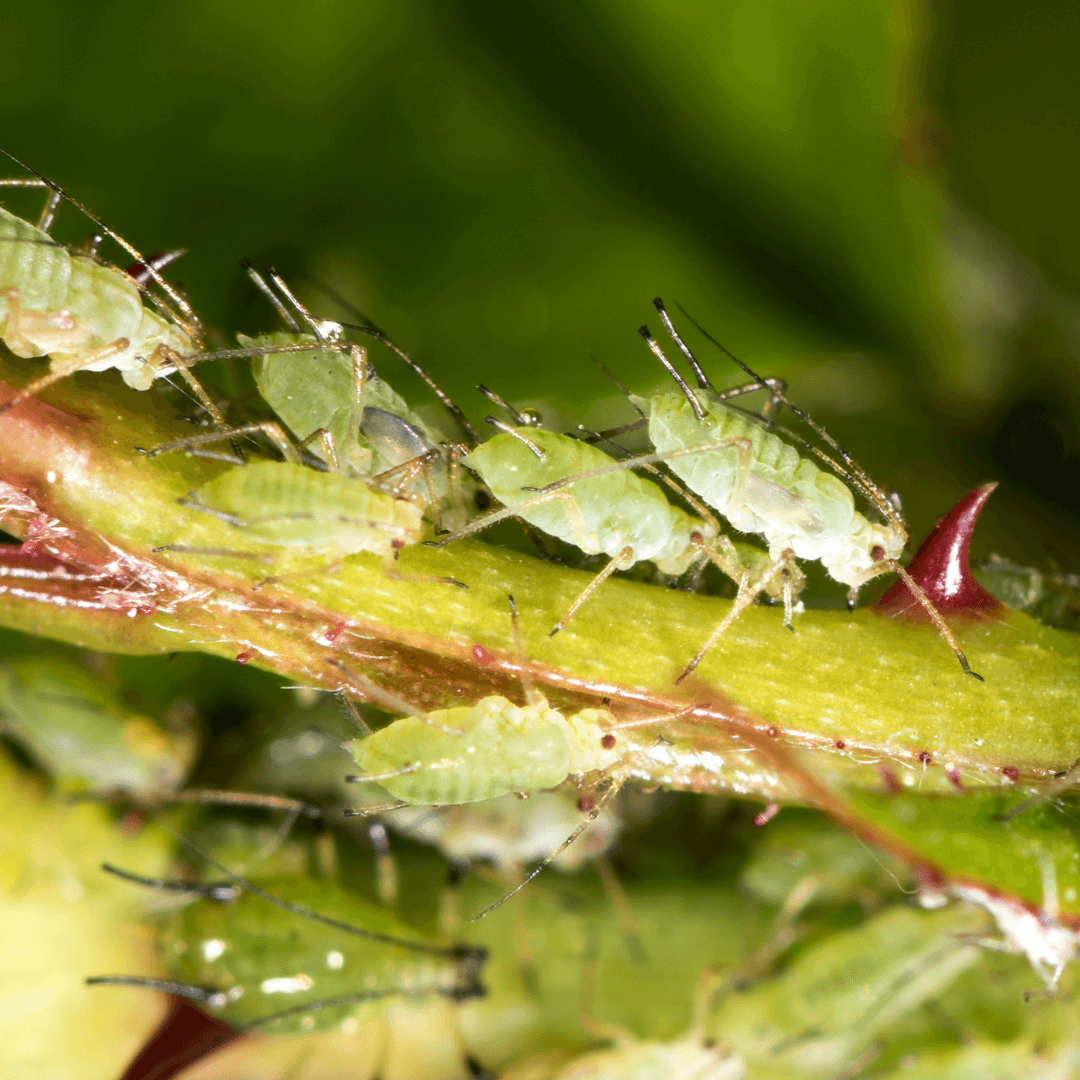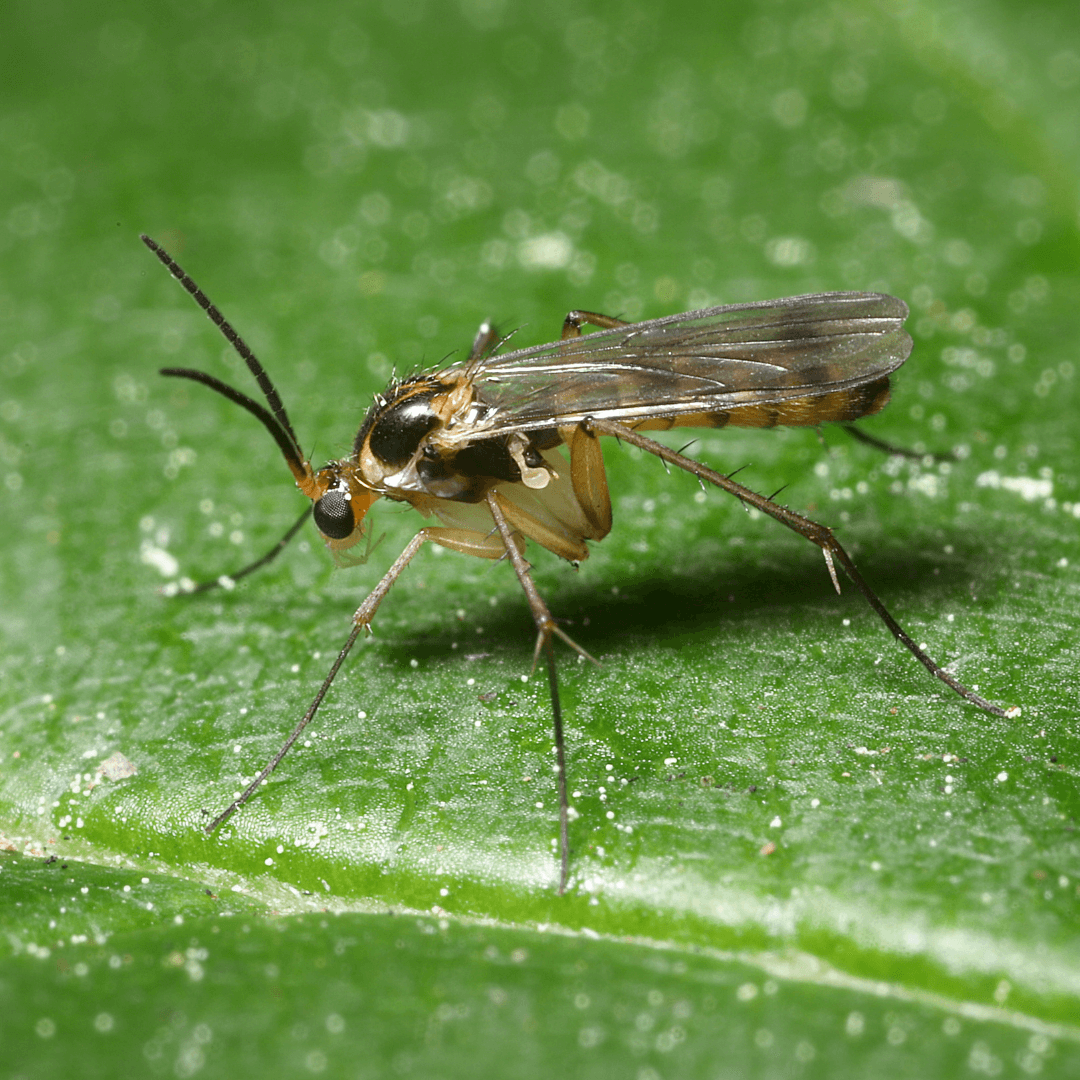Many of us love the sound of crickets chirping on a warm summer evening, but have you ever wondered if these little creatures harm your garden? In this in-depth article, we will discuss whether are crickets harmful for gardens and whether are they a friend or foe to your vegetable and herb gardens. Let's take a look at preventing cricket populations from causing any damage.
Are Crickets Friend or Foe?
Contrary to popular belief, crickets are not always harmful to your garden. In fact, according to Michigan State University, crickets can benefit the garden ecosystem, as they feed on organic matter, weed seeds, and even small pests. However, some types of crickets, like mole crickets, can be more harmful than helpful. Mole crickets are known for their long antennae and burrowing habits that can damage plant roots.
Pros of Having Crickets in Your Garden
- Crickets help break down organic matter, such as dead leaves and grass clippings, essential for healthy soil.
- They control weed seeds by consuming them.
- Some cricket species even eat smaller pests, helping to keep your garden pest-free.
Cons of Having Crickets in Your Garden
- Mole crickets can damage plant roots by burrowing through the soil.
- When present in large numbers, field crickets can chew on young plants and seedlings.
- Crickets can be a nuisance by laying eggs in the garden, increasing their population.
Step-by-Step Guide: How to Prevent Crickets in Your Garden
Now that we know crickets can be both helpful and harmful let's discuss how to prevent cricket populations from causing damage to your garden.
1. Clean up Your Garden
Crickets love hiding in organic matter, such as dead leaves and grass clippings. By removing these materials, you can reduce the number of crickets living in your garden.
- Regularly rake and remove dead leaves and grass clippings.
- Keep your garden free of weeds, as crickets are attracted to weed seeds.
- Remove any debris or clutter, such as stacks of wood or bricks, to eliminate hiding spots.
2. Use Physical Barriers
Physical barriers can help prevent crickets from entering your vegetable and herb gardens.
- Install garden fencing or mesh netting around your garden beds to keep crickets out.
- Use row covers to protect seedlings and young plants from field crickets.
Vegetable Seed Vault Kit | 35 Variety Pack

$29.95
$49.95
Ultimate Survival Seed Vault: 16,000+ Non-GMO Heirloom Vegetable Seeds for Emergency Preparedness Introducing the Seed Vault Kit, your all-in-one solution for emergency preparedness and sustainable gardening. This premium seed kit contains over 16,000 non-GMO, Heirloom, Non-Hybrid, and Open Pollinated seeds,… read more
3. Apply Natural Repellents
There are several natural repellents that you can use to deter crickets from your garden.
- Sprinkle diatomaceous earth around your garden beds, which can kill crickets by damaging their exoskeleton.
- Apply chili powder or crushed red pepper flakes around your plants to repel crickets.
- Mix a water and dish soap solution, and spray it on your plants to deter crickets.
4. Introduce Natural Predators
Encouraging the presence of natural predators in your garden can help keep cricket populations under control.
- Attract birds to your garden by installing bird feeders and birdhouses.
- Encourage toads and frogs to live in your garden by providing hiding spots, such as small rocks or logs, and a water source.
5. Use Traps
Traps can be an effective method for catching and killing crickets in your garden.
- Place sticky traps around your garden to catch crickets.
- Create a simple trap by burying a jar or container with a small amount of molasses. Crickets will be attracted to the sweet scent and fall into the container, where they will become trapped.
How to Get Rid of Crickets in Your Garden
If you already have a cricket infestation in your garden, here are some additional methods to help you eliminate crickets.
6. Vacuum Them Up
Using a handheld vacuum, you can suck up crickets that you see in your garden. Be sure to empty the vacuum bag into a sealed container to prevent the crickets from escaping and returning to your garden. I've done this several times with crickets and other garden pests. Don't mind me, just out here vacuuming my garden haha.
7. Use Chemical Pesticides (As a Last Resort)
If you have tried all other methods and still have a significant cricket problem, you can consider using chemical pesticides to eliminate crickets. However, this should be a last resort, as chemical pesticides can harm beneficial insects and other garden wildlife.
- Always follow the instructions on the pesticide label, and use the minimum amount required.
- Apply the pesticide only to the affected areas of your garden, avoiding the use of broad-spectrum insecticides that can harm other insects.
 In Conclusion
In Conclusion
While crickets can be both beneficial and harmful to gardens, it is essential to maintain a balanced ecosystem. By following the steps outlined in this article, you can prevent cricket populations from causing damage to your vegetable and herb gardens while still enjoying the lovely sounds of crickets chirping on warm summer evenings.
Remember that it is essential to maintain a clean and healthy garden environment to discourage crickets from causing harm. By staying vigilant and following these preventive measures, you can enjoy a thriving garden and the charming presence of crickets without worry.
Happy gardening from all of us at www.gardenersbasics.com!



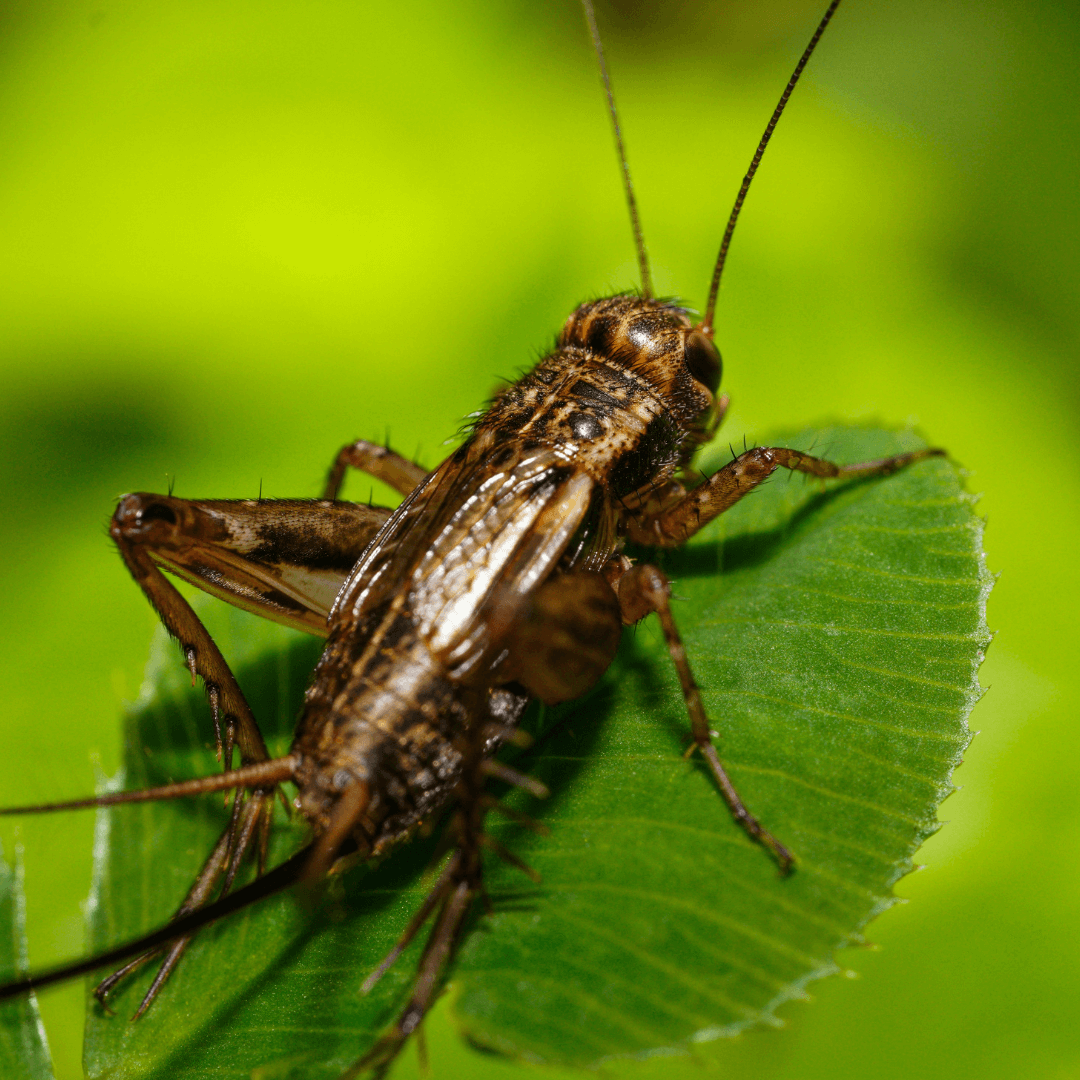

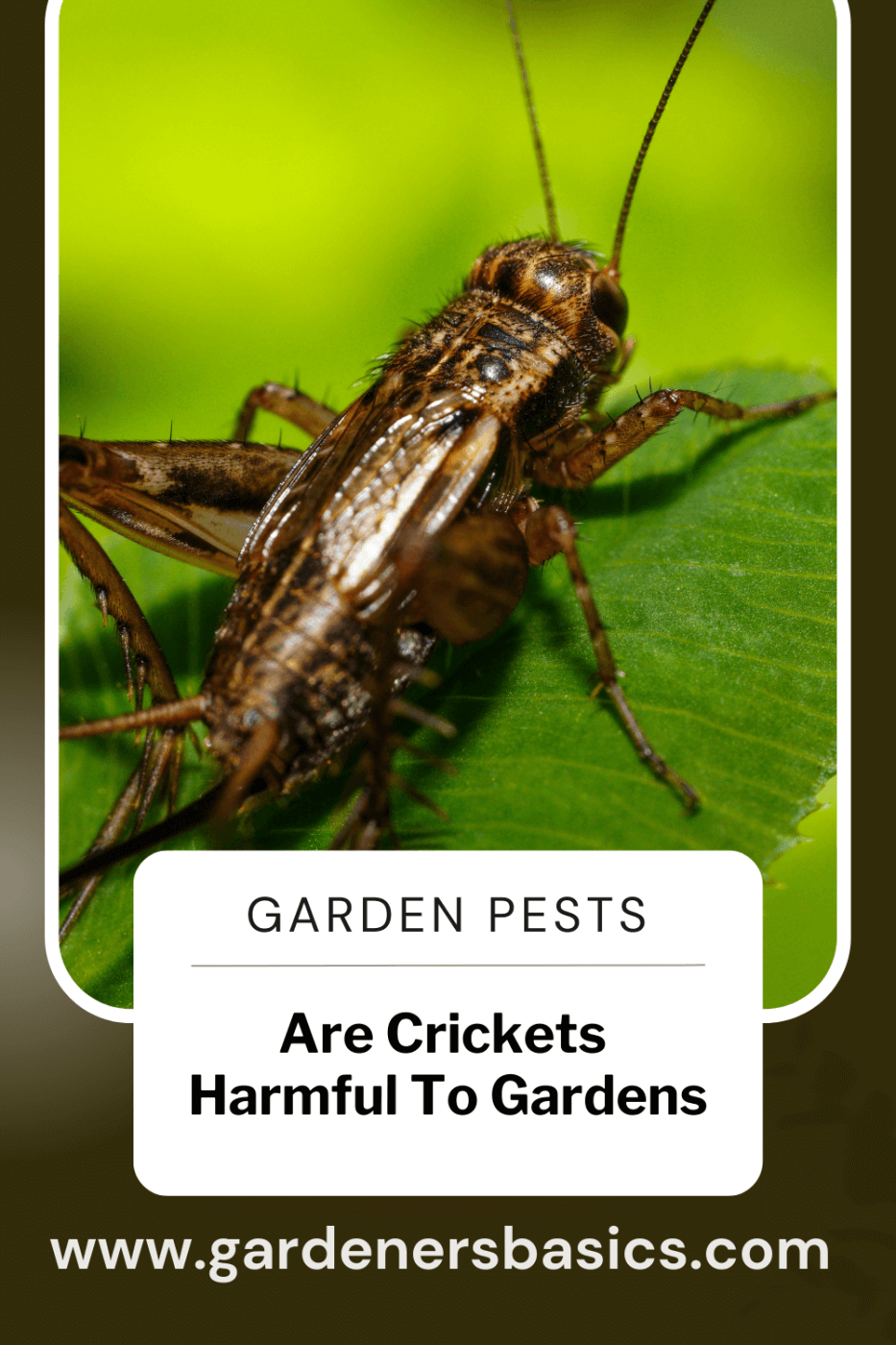 In Conclusion
In Conclusion